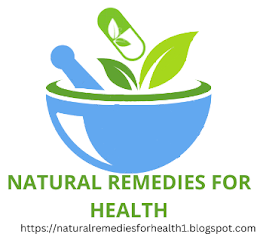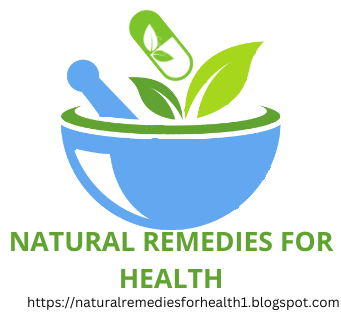Healing Foods: Incorporating Natural Remedies into Your Diet
Introduction
In a world where convenience often trumps nutrition, it's essential to remember the remarkable healing potential of the foods we consume. The saying "you are what you eat" couldn't be more accurate, as our dietary choices play a significant role in our overall health and well-being. By incorporating natural remedies into your diet, you can harness the power of Mother Nature to support your body's healing processes. In this article, we'll explore the fascinating world of healing foods and how they can positively impact your life.
Healing Foods: A Holistic Approach
Nourishing Your Body with Nutrient-Dense Foods
Incorporating natural remedies into your diet starts with opting for nutrient-dense foods. These foods are rich in essential vitamins, minerals, and antioxidants that support your body's natural healing mechanisms. Fruits, vegetables, whole grains, lean proteins, and healthy fats should form the foundation of your diet. By consuming a variety of these foods, you provide your body with the building blocks it needs to thrive.
The Magic of Superfoods
Superfoods have gained popularity for their exceptional health benefits. These foods are often packed with antioxidants, phytochemicals, and other bioactive compounds that can contribute to your well-being. Blueberries, kale, turmeric, and chia seeds are just a few examples of superfoods that can easily be incorporated into your meals.
Embracing Herbal Remedies
Herbs have been used for centuries for their medicinal properties. Incorporating herbs like ginger, garlic, and basil into your cooking not only adds flavor but also provides potential health benefits. For instance, ginger is known for its anti-inflammatory properties, while garlic may help boost your immune system.
The Healing Power of Hydration
Quenching Your Thirst with Healing Teas
Hydration plays a vital role in maintaining optimal health. Beyond water, certain herbal teas offer unique benefits. Green tea, for instance, is rich in antioxidants called catechins that have been linked to various health perks, including improved metabolism and heart health.
Infused Water for Detoxification
Infused water is a refreshing and flavorful way to stay hydrated while reaping additional benefits. Adding slices of lemon, cucumber, mint, or berries to your water not only enhances its taste but also infuses it with vitamins and minerals that aid detoxification.
Gut Health: Your Body's Balancer
Fermented Foods for a Happy Gut
A healthy gut is essential for overall well-being. Incorporating fermented foods like yogurt, kefir, sauerkraut, and kimchi introduces beneficial probiotics to your digestive system. These friendly bacteria promote digestion, boost the immune system, and even influence your mood.
The Prebiotic Power of Fiber
Prebiotics are non-digestible fibers that feed the beneficial bacteria in your gut. Foods like oats, bananas, onions, and garlic are rich in prebiotics. By consuming these foods, you create an environment that supports the growth of good bacteria, which in turn contributes to better digestion and a stronger immune system.
A Rainbow of Nutrition: Vibrant Fruits and Vegetables
Exploring Phytonutrients
Phytonutrients are compounds found in plants that offer a range of health benefits. Each color in fruits and vegetables signifies different types of phytonutrients. For instance, the orange hue of carrots indicates the presence of beta-carotene, which is excellent for vision and skin health.
Designing Your Plate with Color in Mind
A visually appealing plate often translates to a well-balanced and nutritious meal. Incorporate a variety of colorful fruits and vegetables into your dishes to ensure you're getting a diverse range of nutrients that support various aspects of your health.
Frequently Asked Questions (FAQs)
What are healing foods?
Healing foods are nutrient-rich, natural foods that offer potential health benefits beyond basic nutrition. These foods contain bioactive compounds that can support various bodily functions and promote well-being.
How can I incorporate healing foods into my diet?
Incorporating healing foods into your diet involves adding nutrient-dense options like fruits, vegetables, whole grains, lean proteins, and healthy fats. You can also embrace superfoods and herbs, and prioritize hydration through herbal teas and infused water.
Can healing foods replace medical treatments?
Healing foods can complement your overall health but should not replace medical treatments prescribed by healthcare professionals. Consult your doctor before making significant dietary changes, especially if you have existing health conditions.
What are superfoods?
Superfoods are foods that are particularly rich in nutrients and bioactive compounds that contribute to overall health. They often have antioxidant, anti-inflammatory, and other beneficial properties.
How do fermented foods benefit gut health?
Fermented foods contain probiotics, which are beneficial bacteria that support gut health. Consuming these foods can help balance your gut microbiome, improve digestion, and boost immunity.
Why is gut health important?
Gut health plays a crucial role in digestion, nutrient absorption, immune function, and even mental health. A balanced gut microbiome contributes to overall well-being.
Conclusion
Incorporating natural remedies into your diet can revolutionize your relationship with food and your overall well-being. By nourishing your body with healing foods, embracing superfoods and herbs, prioritizing hydration, and supporting gut health, you take proactive steps towards a healthier and more vibrant life. Remember, every meal is an opportunity to promote healing and nourishment. So, why wait? Start your journey to holistic wellness by exploring the incredible world of healing foods today.


















1 Comments
I try The Prebiotic Power of Fiber remedy that was amazing. I am so happy. thanks for helpful blog
ReplyDelete